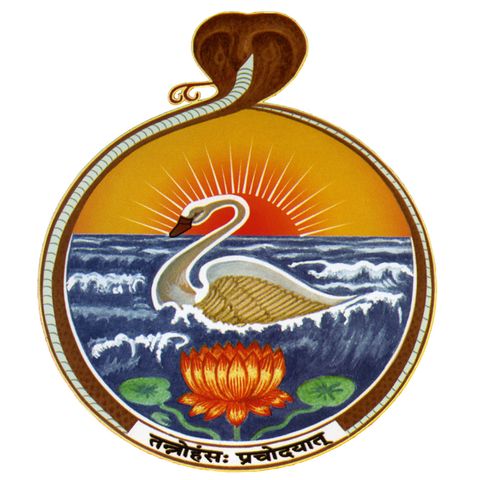17 - Mind: Our Friend or Our Enemy? | Swami Tattwamayananda

Sign up for free
Listen to this episode and many more. Enjoy the best podcasts on Spreaker!
Download and listen anywhere
Download your favorite episodes and enjoy them, wherever you are! Sign up or log in now to access offline listening.
Description
Chapter 2 Verses 60 – 63. The lecture was given by Swami Tattwamayananda on June 14, 2019. - The mind: our master or our slave? - Why does the mind...
show more- The mind: our master or our slave?
- Why does the mind revolt?
- When does our mind become our friend?
- Can we program our mind?
- Why we cannot program our mind.
- We cannot disown our accumulated impressions and samskaras.
- The problem of fragmentation of the mind.
- The pull of the sense-objects, the senses, the visual and the audio objects, the internet, etc.
- If the mind is dragged away from its ideal, it won't stop till it reaches rock-bottom.
- The analogy from Sri Shankaracharya's 'Viveka-chudamani'.
- The analogy of the ball falling down the ladder - The attraction of the senses. - ('Viveka-chudamani', an introductory text on Advaita Vedanta - verse: 326).
- The enslavement of the mind when dragged by unrestrained senses.
- A warning: we should never try to restrain the senses without first evolving a counter-focus.
- The mind compared to a drunken monkey, possessed by a ghost and bitten by a scorpion.
- 'Controlling the mind' does not mean suppression, it actually means sublimation.
- Keeping the senses engaged in creative work.
- Need for a higher ideal in life and going beyond the sensory system.
- Patanjali's concept of 'Parinama-dukha'.
- (Ref: साधन-पादः ॥ परिणामतापसंस्कारदुःखैर्गुणवृत्तिविरोधा च्च दुःखमेव सर्वं विवेकिनः ॥ २.१५॥ )
- The danger of keeping the mind in a vacuum, without a higher ideal, without a good job.
- Giving a promotion to the mind by feeding it with good food in the form of spiritual ideas.
- The importance of a healthy mind and disciplined senses: directing it into creative channels.
- Psychology of the five 'kleshas' from Patanjali's Yoga-sutras
- (साधन-पादः ॥ "अविद्यास्मितारागद्वेषाभिनिवेशाः क्लेशाः" ॥ २.३॥ ).
- Kunti's prayer to Lord Sri Krishna: "Please give me more trouble so that I will always remember you and will never forget you." (Ref: the ancient Sanskrit epic, 'Mahabharata' ).
- The imagery of the journey on a chariot from the Kathopanishad.
Information
| Author | Vedanta Society, San Francisco |
| Organization | Vedanta Society, San Francisco |
| Website | - |
| Tags |
Copyright 2024 - Spreaker Inc. an iHeartMedia Company
